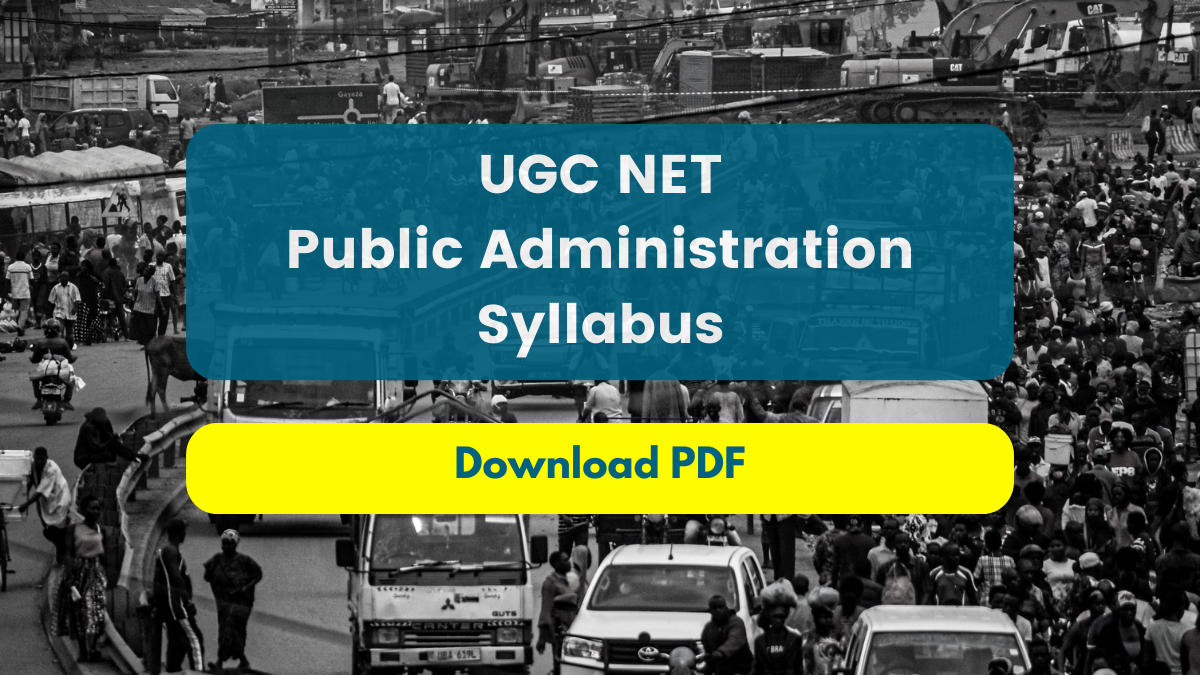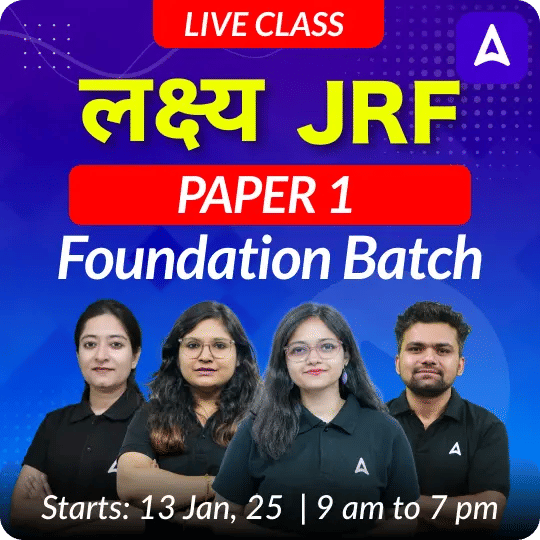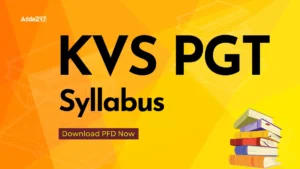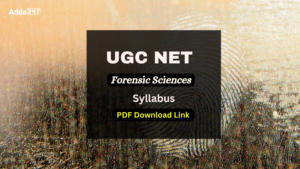Table of Contents
The UGC NET examination serves as a national eligibility test for individuals who aspire to teach at higher education institutions and universities across the nation. This article will discuss the syllabus of “Public Administration”. One of the important subjects from the total subject list of 85.
For a thorough exam preparation journey, candidates should first gain a clear understanding of the important topics within “Public Administration” according to the UGC NET curriculum. It is important to familiarize yourself with the Public Administration syllabus and stay updated with the latest news and announcements. Below in this article, you will find the detailed Public Administration syllabus for both Paper I and Paper II, available in both English and Hindi languages.
What is UGC NET Public Administration Syllabus 2025?
The UGC NET Public Administration examination is the national eligibility test which is conducted by the National Testing Agency on the behalf of University Grant Commission to recruit candidates for the post of Assistant Professor in Universities/Colleges across the country for teaching the subject of Public Administration. Following is a brief outlook on the important information about the UGC NET Public Administration exam.
| UGC NET Public Administration Syllabus 2025 Overview | |
|---|---|
| Name of the exam | UGC NET Public Administration |
| Subject code | 14 |
| Conducting Authority | National Testing Agency (NTA) |
| Number of papers | 2 (Paper I & Paper II) |
| Exam frequency | Twice a year |
UGC NET Public Administration Exam Pattern 2025
The UGC NET Public Administration exam has two levels, Paper 1 and Paper 2. To ace the examination candidates appearing for this exam should have the right knowledge about the exam pattern and syllabus. The exam pattern is given below:
| Particulars | Paper I | Paper II |
| Number of questions | 50 | 100 |
| Marks per question (2 marks) | 100 marks | 200 marks |
| Duration of exam | 3 hours collectively | |
UGC NET Public Administration Syllabus 2025
The UGC NET Public Administration Syllabus 2025 covers various important topics, including theories of administration, development administration, governance, public policy, and comparative public administration. NET Public Administration syllabus also includes contemporary issues raised by administrative thinkers and the challenges faced in the public sector. Let’s have a detailed look at the NTA NET Public Administration syllabus below.
Unit-I: Introduction to Public Administration:
- Public Administration- Meaning, Nature, Scope & Significance
- Principles of Organization.
- Meaning, Nature and Scope of Personnel Administration
Unit-II: Administrative Thought:
Approaches to the study of Public Administration: Oriental– Kautilya; Classical – F W Taylor, Henri Fayol, Max Weber, Luther Gulick and Lyndall Urwick ; Human Relations – Elton Mayo, Mary Parker Follett; Behaviouralism– Chester Barnard, Herbert Simon; Motivation – Abraham Maslow, Fredrick Herzberg, Douglas McGregor; Organizational Humanism – Chris Argyris, Rensis Likert; Writers on Administration: Dwight Waldo, Ferrel Heady, Robert Golembiewski and Peter Drucker; Minnobrook Perspective, New Public Service and Post Modernism.
Unit-III: Indian Administration:
- Evolution – Ancient, Mughal and British Periods
- Union Government: President
- Election Commission and Electoral Reforms, Union State Relations.
- Accountability
- Citizen Grievance Redressal Mechanism
- Civil Services
- Recruitment Agencies – Union Public Service Commission, State Public Service Commissions and other Commissions and Boards: Capacity Building of Civil Servants and Civil Service Reforms.
- Planning
- Judiciary
Unit-IV: State & Local Administration:
- Constitutional Framework of State Administration- State Legislature
- District Councils – Structure, Powers and Functions, District Rural Development Agency; Evolution of Local Governance in India.
- Local Governance
- Finance in PRIs, Personnel administration at local level
- Growth of Urbanization, Urban Governance
Unit-V: Comparative and Development Administration:
- Comparative Public Administration.
- Development Administration
- Development Administration
- Globalization and Development Administration
Unit-VI: Economic and Financial Administration:
- Economic Policies – Mixed Economy to Liberalization, Privatization and Globalization (LPG)
- Financial Administration: Public Finance – Revenue and Expenditure:
Unit-VII: Social Welfare Administration:
- Concept of Social Welfare, Social Justice and Social Change
- Disaster Management – Nature and Types of Disaster
Unit-VIII: Public Policy:
- Nature, Scope and Importance of Public Policy
- Theories and Models of Policy Making
- Constraints on Public Policy
Unit-IX: Governance and Good Governance:
- Ancient Discourse – Kautilya, Plato and Aristotle on Good Governance
- Governance as Theory, Governance and Public Governance.
- Networking and Collaborative Governance, Business Process Re-engineering, ICT and Governance
- Citizen and Governance
- Ethics and Public Accountability in Governance
Unit-X: Research Methodology:
- Social Science Research- Meaning and Significance
- Collection- Primary and Secondary sources
Download UGC NET Public Administration Syllabus PDF in Hindi and English
Access the UGC NET Public Administration Syllabus PDF for 2025 in both Hindi and English through the provided link below. The UGC NET Public Administration Syllabus 2025 includes comprehensive unit-wise details and important topics for focused preparation. Download the Public Administration Syllabus PDF 2025 from the link provided below.
| UGC NET Public Administration Paper II Syllabus PDF in Hindi and English | |
| UGC NET Public Administration Paper II Syllabus PDF in English | UGC NET Public Administration Paper II Syllabus PDF in Hindi |
Conclusion
Hence, the UGC NET Exam in Public Administration gives an opportunity to candidates to apply for teaching public administration subjects in colleges and universities. For this candidate needs to prepare for the exam well. It becomes important for the candidate to understand the syllabus and define the topics which are relevant and most important.




 KVS PGT Syllabus 2025, Download PGT Syll...
KVS PGT Syllabus 2025, Download PGT Syll...
 UGC NET Forensic Science Syllabus 2025 a...
UGC NET Forensic Science Syllabus 2025 a...
 UGC NET Visual Arts Syllabus 2025 PDF Do...
UGC NET Visual Arts Syllabus 2025 PDF Do...














